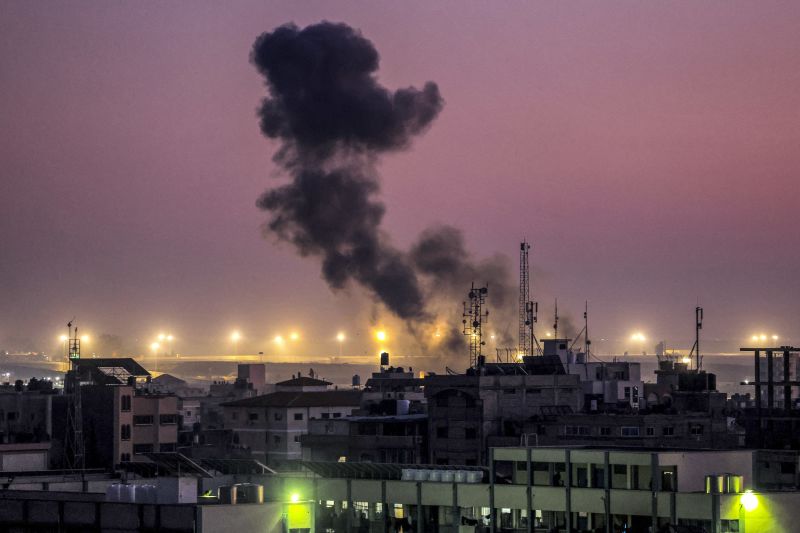
Hamas counterproposal on hostage and ceasefire deal calls for phased Israeli pullout from Gaza and plan to end war
Hamas has presented its response to a proposal for a ceasefire and hostage deal in Gaza by calling for a phased Israeli withdrawal from the enclave during a four-and-a-half-month truce and a plan to permanently end the war.
The Palestinian militant group that rules Gaza has proposed a three-phase deal, each lasting 45 days, that would also see the release of hostages held in the enclave in exchange for Palestinian prisoners in Israel – including those serving life sentences – as well as the start of a massive humanitarian and rebuilding effort.
It hasn’t demanded an immediate end to the war. Negotiations for a permanent ceasefire would take place during the truce, it said.
The proposal was a response to a framework agreement presented by negotiators in Paris at the end of last month.
The Hamas response has been met with optimism by some of the parties involved but one Israeli official said Wednesday there was “no way” his country would accept it. Prime Minister Benjamin Netanyahu has vowed repeatedly that the war will not end until there is “complete victory” over Hamas, which includes killing Hamas leadership and that it “will take time — months not years.”
Under Hamas’ counterproposal, the first phase of the ceasefire would include the release of hostages in Gaza including women and children under 19 years old who aren’t enlisted in the Israeli military, as well as the elderly and the sick, in exchange for all Palestinian female, juvenile, sick and elderly Palestinian prisoners as well as 500 prisoners named by Hamas, including those with life sentences and convictions for serious crimes.
It would also include intensifying humanitarian aid, moving Israeli forces “outside populated areas,” a “temporary cessation” of military operations and aerial reconnaissance, the start of reconstruction work, and allowing the United Nations and its agencies to provide humanitarian services and establish housing camps.
It would also see the return of displaced Palestinians to their homes in all areas of the Strip and would ensure freedom of movement without obstruction.
In addition, this first phase would include starting indirect talks on “the requirements necessary for a complete ceasefire” and negotiations on the details for the second and third phases.
The second phase, Hamas has proposed, would see the conclusion of talks on a mutual cessation of hostilities. During the second phase, all male hostages in Gaza (civilians and military personnel) would be released “in exchange for a specified number of Palestinian prisoners” and Israeli forces would have to completely exit the enclave.
Phase three would aim to exchange bodies and remains of those killed on both sides. It also stipulates that all crossings from the Gaza Strip be opened for trade to resume and so people can move without obstacles. Israel would commit to provide Gaza with its electricity and water needs.
Finally, Hamas proposes that the guarantors of the agreement would be Egypt, Qatar, Turkey, Russia and the United Nations. It does not include the US among the guarantors.
Hamas’ counterproposal has been met with optimism by those involved in the negotiations. Sheikh Mohammed bin Abdulrahman Al Thani, the prime minister of Qatar, which is mediating, said Tuesday Hamas’ response to Israel’s proposal was “positive.”
“The reply includes some comments, but in general it is positive. However, given the sensitivity of the circumstances, we will not tackle details,” Al Thani said in the Qatari capital Doha after meeting Blinken. “We are optimistic, and we have delivered the response to the Israeli party.”
